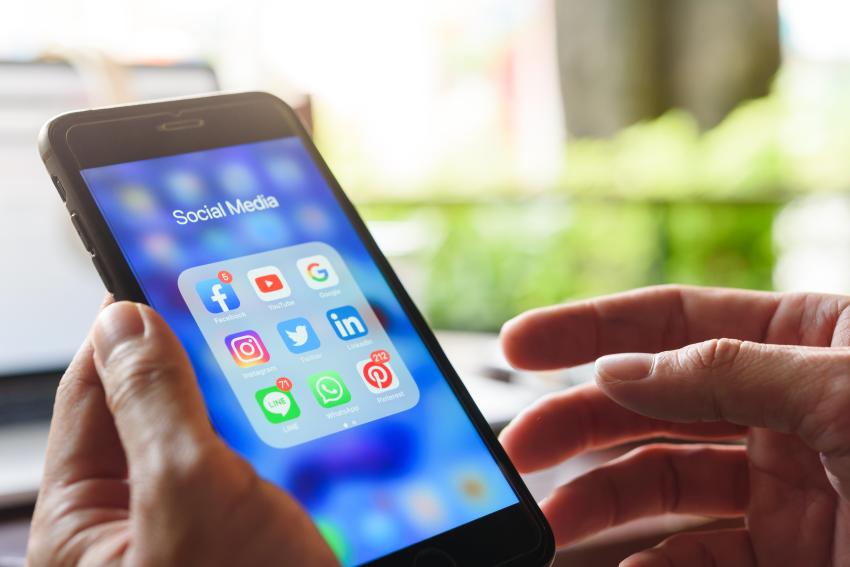Influence of the new social media platforms

The new social media platforms have led to an unprecedented communications revolution. These emerging platforms have rapidly taken over the world, transforming the way we share information and build relationships. In this article, we will examine the influence of these new platforms on our behaviour and social interactions.
Índice de contenidos
Index of contents
Index du contenu
Inhaltsverzeichnis
Indice dei contenuti
Evolution of forms of communication
Nowadays, there are innovative and dynamic methods of interacting. It is now possible to share content and express our thoughts. This transformation has had an impact on the way we communicate in the digital age:
- Communication formats: ephemeral stories, live videos and voice messages. Sharing moments in real time has reinforced authenticity and connection. They must interact before the content disappears, which stimulates engagement.
- Wealth of visual content: increasing use of images, videos and computer graphics. The platforms have created filters, retouching and special effects, making it possible for anybody to create attractive visuals. Images and videos are more widely shared, commented on and liked, because they are easier to understand.
- Asynchronous and synchronised communication: asynchronous communication allows flexibility and time for reflection. Synchronised communication strengthens social links through real-time contribution to events.
- Multimodal communication: enriches messages with visual, audio and text elements, to express more complex emotions.
Redefinition of social relationships
Social relationships are being redefined both online and offline. Social media can influence people's behaviour in the following ways:
- Global connectivity: interactions with people from different cultures and locations. This promotes understanding of the world and the creation of inter-cultural links.
- Extended networks: the chance to meet new people with similar interests, or to build up a professional network.
- Strengthened links: maintaining long-distance relationships. Regular exchanges strengthen emotional bonds while sharing moments, events and emotions.
- Creation of virtual communities: a space where members can connect, exchange knowledge and support each other.
- Impact on self-esteem: likes and positive comments boost self-confidence. However, the comparison and pressure to have a perfect online image can have negative effects.
- New forms of intimacy: individuals share personal and intimate photos and content with a wider audience. Privacy and boundaries have been redefined.
- Influences on dating: online profiles, algorithmic matches and virtual interactions have changed the dynamics of dating.
Influence on public opinion
The platforms have played a role in shaping and disseminating opinions, while at the same time raising problems of lack of information. This has had an impact on the influence of social media in politics.
Content can be shared in an instant, reaching a much wider audience than traditional media. False information can spread rapidly, sometimes with serious consequences. Social media play a role in online activism. They have also democratised storytelling and given a voice to those who were previously excluded.
Platform algorithms adapt information flows according to the preferences and interactions of each individual. This reinforces beliefs and limits exposure to divergent perspectives.
But the creation of online groups focused on shared interests and opinions influences individuals. Online discussions can reflect society's feelings and attitudes, providing the political sphere and researchers with information on popular opinion.
Impact on information consumption
Social media use has changed the way we access, process and share information, through instant dissemination and a multitude of sources, formats and perspectives. Influencers, who share opinions that influence beliefs and choices, also have increasing power.
Amateur videos and testimonies are competing with the traditional media, changing the hierarchy of information. Viral and captivating content is favoured, and this has had an impact on journalism, as well as the transformation of advertising models to target specific audiences based on their demographics and interests.
Social and psychological consequences
The influence of social media on young people is greater because they have less of a critical mind and are easily influenced.
Social consequences:
- Strengthening and expansion of social links: with the creation of new friendships and online communities.
- Loss of time: the impact of social networking on productivity at work, but also on personal activities and offline social relationships.
- Cyber bullying and harassment
- Exposure to similar opinions: reinforces beliefs and isolates divergent points of view.
- False information
Psychological consequences:
- Addiction and excessive use: constant need to check notifications.
- Social comparison and self-image
- Social anxiety: pressure to maintain a positive online image.
- Validation effects: search for likes, comments and reactions.
- Information overload: makes it difficult to sort and manage relevant information.
In conclusion, the new social media platforms have transformed the way we communicate, interact and access information. They offer considerable advantages, while posing challenges for our modern society. The key lies in balanced, considered use to maximise the benefits while minimising the potential risks. Our translation agency AbroadLink can help you with your social media marketing strategy.



Comments
Add new comment